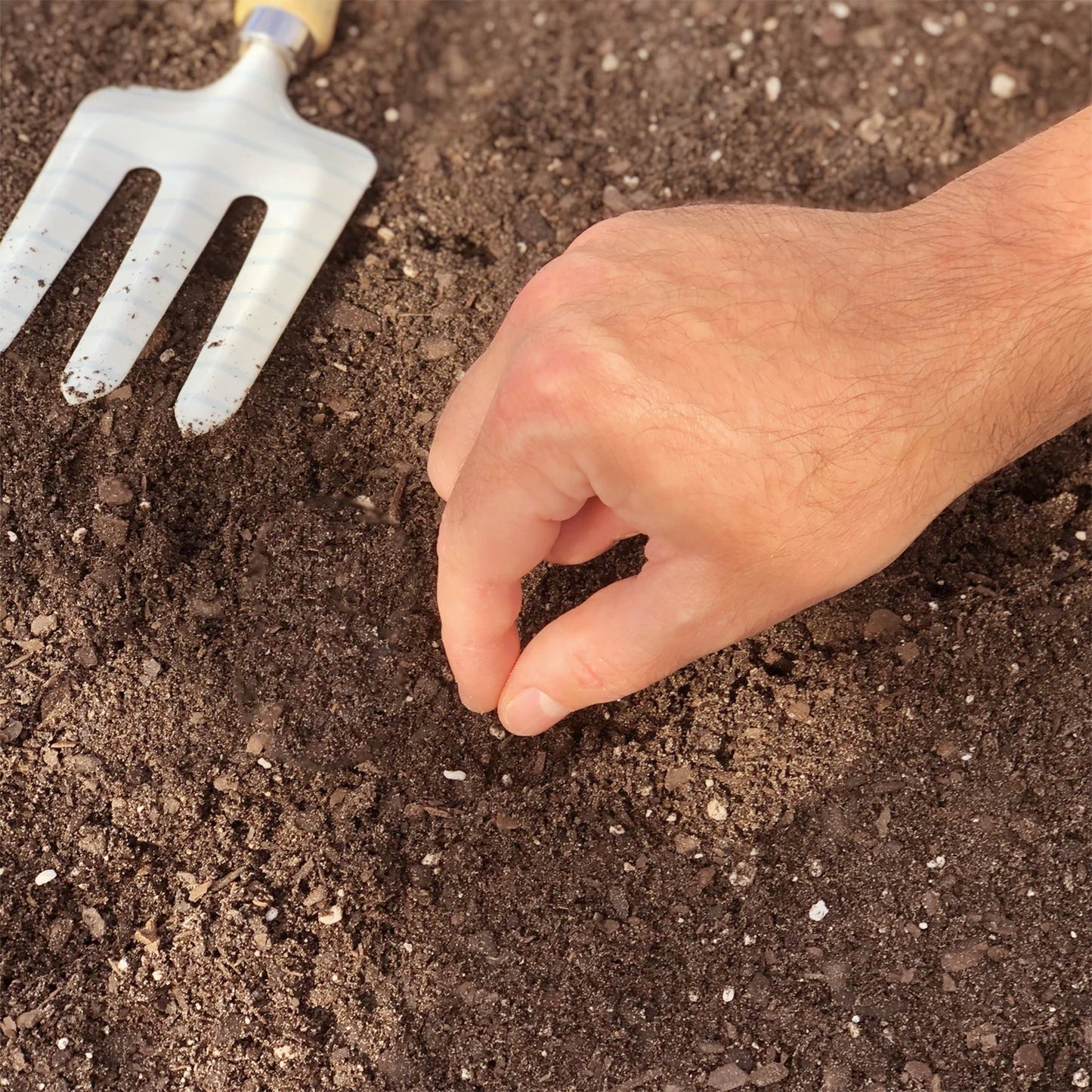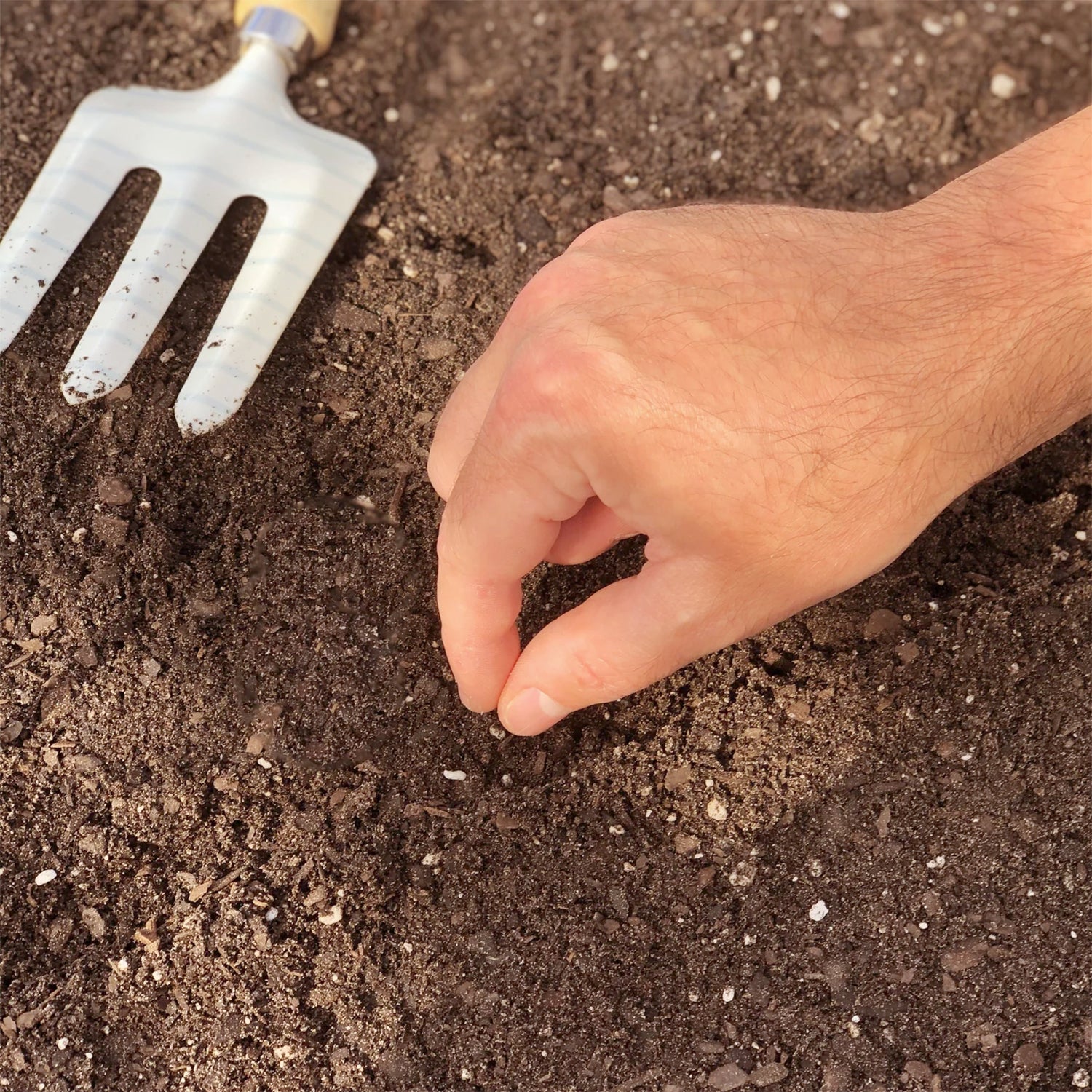Watermelon seeds can be sown directly into the garden when the soil is warm and all danger of frost is past. Soil temperature (not air temperature) should be above 18°C (65°F) . Plant 2-3 seeds in mounds 60-90 cm (24-36 in.) apart. Press seeds into the soil to ensure good contact and cover with 2.5 cm (1 in.) of soil. After planting, water the seeds with a gentle mist or shower. It is critical to keep the soil consistently moist, but not soggy during germination. When your seedlings reach a height of a few centimetres (inches) and have developed 2 or 3 pairs of leaves, it is important to thin them out, according to the plant spacing indicated below. Do not allow the soil to become dry, as young plants have underdeveloped roots and can quickly dehydrate, particularly in windy conditions. For an earlier crop, watermelon seeds can be started indoors 3 to 4 weeks before the last frost in your area. Follow the seed depth and spacing guidelines indicated below. Once all danger of frost has passed, seedlings should be hardened off before planting in their growing location. Seedlings should be transplanted according to the plant and row spacing directions below. Regularly monitor your plants and ensure that the soil remains moist while they establish themselves in their new environment.















